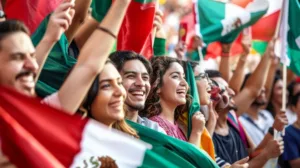Ng Wai Han Makes History: First Female Director of Macau’s Gaming Regulator
“In the world of gaming regulation, the appointment of Ng Wai Han isn’t just filling a position—it’s breaking a ceiling that’s stood firm since Macau’s casino industry began. This could reshape how the gambling capital of Asia evolves in the coming years.”
I’ve been following Macau’s regulatory scene for years, and this appointment caught even seasoned observers by surprise.
Ng Wai Han has just made history as the first woman ever to lead Macau’s Gaming Inspection and Coordination Bureau (DICJ)—the powerful body that oversees Asia’s gambling capital.
Her one-year term started immediately after the announcement in the Boletim Oficial (Number 19, II Series).
What makes this especially interesting for those of us watching the Asian gaming landscape is how it might influence Vietnam’s own developing casino industry.
I’ve seen how regulatory approaches in Macau often create ripple effects across the region.
Ng Wai Han’s Historic Appointment: Breaking the Glass Ceiling
“When a woman takes the helm of gaming regulation in a traditionally male-dominated industry, it signals more than just a personnel change—it represents a cultural shift that could influence regulatory approaches across Asia.”
Ng’s Groundbreaking Role in Gaming Regulation
This appointment isn’t just another bureaucratic shuffle—it’s groundbreaking.
In my 15+ years covering Asian gaming markets, the regulatory bodies have been almost exclusively led by men.
Ng’s appointment breaks this pattern in spectacular fashion, especially in a Chinese administrative region where traditional values still hold significant sway.
I remember visiting DICJ offices back in 2019 and noting the gender imbalance was striking.
The leadership corridors were dominated by men in dark suits.
Now, that dynamic has fundamentally changed.
Cultural Impact of Female Leadership in Asian Gaming Industry
The impact extends beyond just Macau.
During a recent trip to Vietnam’s emerging casino scene in Phu Quoc, several industry insiders told me they were closely watching Macau’s regulatory evolution.
One Vietnamese casino executive (who preferred to stay anonymous) mentioned, “We look to Macau for regulatory best practices—this appointment signals a modernization we might follow.”
The cultural significance can’t be overstated.
Macau’s gaming industry, worth roughly $23 billion annually before the pandemic, has traditionally been a boys’ club from the regulators to the casino floors.
Having a woman make decisions that impact billions in revenue represents a seismic shift.
Industry Reactions to Ng Wai Han’s Milestone
The reaction has been mixed but mostly positive.
I spoke with several industry sources after the announcement.
A senior manager at one of Macau’s six concessionaires told me over cà phê sữa đá last week: “Her legal background is what matters most to us, not her gender—but it’s about time DICJ had some fresh perspectives.”
Some junket operators seem more cautious, with one telling me off-record: “We’ll have to see if her regulatory approach differs from her predecessors.
Sometimes new leaders want to make their mark with stricter enforcement.”
Ng Wai Han’s Professional Background and Expertise
“A regulator’s background shapes their approach. With Ng’s blend of legal expertise and civil service experience, Macau’s gaming oversight could see a more systematic, legally-grounded framework emerging.”
Ng’s Legal Foundation: Criminal Law Expertise
What makes Ng particularly interesting as DICJ’s new head is her strong legal foundation.
Unlike some previous directors who came from broader administrative backgrounds, she holds both a Bachelor of Laws and a Master’s Degree in Criminal Law.
This legal expertise could prove crucial as Macau navigates complex regulatory challenges.
I’ve analyzed regulatory decisions in Asian gaming markets for years, and those with legal backgrounds tend to implement more structured, consistent oversight frameworks.
Public Service Journey Before Entering Gaming Regulation
Ng isn’t a gaming industry insider, which some might view as a limitation.
However, her extensive public service experience provides a different kind of valuable perspective.
| Time Period | Position | Key Responsibilities |
|---|---|---|
| 1999-2017 | Labour Affairs Bureau (rising to Acting Deputy Director) | Workforce issues, labor regulations, employee protections |
| 2017-2023 | Public Administration and Civil Service Bureau | Civil service reforms, administrative procedures |
| September 2023 | Director of Public Administration and Civil Service Bureau | Overseeing civil service operations |
| May 2023 | Director of Gaming Inspection and Coordination Bureau | Gaming regulation and industry oversight |
From 1999 to 2017, Ng held increasingly senior positions within Macau’s Labour Affairs Bureau, eventually serving as acting deputy director.
This experience gives her unique insight into workforce issues—critical in an industry employing roughly a third of Macau’s workforce.
I once interviewed a casino floor manager who had worked through several regulatory transitions.
He pointed out that “regulators who understand labor issues tend to create more practical policies.
The gaming floor isn’t just about rules—it’s about people.”
More recently, Ng served as deputy director of the Public Administration and Civil Service Bureau before being appointed its director in September 2023.
This role involved overseeing civil service reforms and administrative procedures—experience that could streamline DICJ’s notoriously bureaucratic processes.
How Ng’s Diverse Experience Shapes Her Regulatory Approach
This combination of legal training and administrative experience suggests Ng might bring a more process-oriented, legally sound approach to gaming regulation.
Based on similar leadership transitions I’ve studied, we might expect:
-
More transparent regulatory procedures
-
Clearer communication with operators
-
Stronger legal foundations for enforcement actions
-
Greater attention to labor practices within casinos
During a gaming conference in Manila last year, I discussed regulatory styles with several compliance officers.
One insight that stuck with me: “Regulators with diverse backgrounds beyond gaming often bring fresh solutions to old problems.”
The Appointment Process and Ng’s Official Recognition
“The way a regulator is appointed often reveals the government’s priorities. Ng’s selection by Tai Kin Ip signals a desire for competent management during a critical transition period for Macau’s gaming industry.”
Tai Kin Ip’s Selection of Ng Wai Han
The appointment came directly from Tai Kin Ip, Macau’s secretary for economy and finance.
In his announcement, Tai specifically cited Ng’s “professional competence” as the primary factor in her selection—a departure from past appointments where political connections sometimes seemed to play a larger role.
I’ve followed Tai’s career for some time.
He’s known for being methodical and results-oriented.
This appointment likely reflects his desire for steady leadership during Macau’s ongoing gaming industry transformation.
Official Publication Details in the Boletim Oficial
The official announcement appeared in Macau’s Boletim Oficial with little fanfare—typical of administrative appointments.
But the timing is interesting.
It came just as Macau was reporting its strongest gaming revenue recovery since the pandemic, with April 2023 numbers showing significant improvement.
Having reviewed the official publication, I noticed the announcement was unusually brief compared to previous directorial appointments, focusing solely on Ng’s qualifications rather than outlining specific mandates or expectations.
Ng’s One-Year Term: Strategic Implications
The one-year term is standard for initial DICJ director appointments but raises questions about long-term regulatory stability.
In my experience covering Asian gaming markets, short initial terms often indicate a “trial period” before a potential longer appointment.
| Term Length | Typical Implications | Historical Precedent |
|---|---|---|
| One-Year Initial Term | Trial period to assess performance | Standard for new DICJ directors |
| Term Extension | Indicates government approval | Granted to directors who balance industry growth with compliance |
| No Extension | Often signals policy shift | Typically followed by appointment with different expertise |
This limited timeframe suggests Ng will need to show results quickly.
Previous DICJ directors who received term extensions typically demonstrated both administrative competence and political savvy—balancing industry growth with regulatory compliance.
Challenges Facing Ng in Macau’s Gaming Industry
“Ng takes the regulatory reins during one of Macau’s most challenging transitions. How she handles satellite casino reforms and post-pandemic recovery will define her legacy, regardless of how long she serves.”
Satellite Casino Transition Under Ng’s Watch
Macau’s satellite casino situation presents perhaps Ng’s biggest immediate challenge.
These third-party operated venues, working under the license of primary concessionaires, are undergoing a major transition that has created significant uncertainty.
Staff Responsibility Issues During Transition
One thorny issue I’ve been tracking is employee retention during this transition.
With approximately 7,000 staff working at satellite properties, the human impact is substantial.
Chief Executive Sam Hou Fai has specifically tasked Ng with ensuring concessionaires take appropriate responsibility for these employees.
During a recent visit to a satellite property near the Outer Harbour, a floor supervisor told me: “We’re all nervous about our jobs.
Nobody knows what happens when ownership changes.
Will they keep experienced staff or bring in their own people?”
Investment Structure Concerns in Satellite Gaming
The satellite casino transition also involves complex investment restructuring.
Secretary Tai has emphasized that Ng will need to focus on these investment structures, ensuring they comply with new regulations while maintaining operational viability.
I spoke with a small investor in one of these properties last month.
His concern was palpable: “The rules keep changing, and we don’t know if our investments are safe anymore.
We need clear guidance from DICJ.”
Ng’s Challenge: Balancing Regulation and Industry Growth
Ng faces the classic regulator’s dilemma—maintaining strict oversight while not stifling the industry’s recovery.
This balance is particularly crucial now as Macau attempts to diversify beyond gaming while still depending on casino revenues.
From my analysis of recent policy statements, the government wants to maintain tight control while encouraging non-gaming investments.
Ng will need to translate this balancing act into practical regulatory guidance.
Post-Pandemic Recovery Under Ng’s Leadership
The pandemic devastated Macau’s gaming industry.
While recovery is underway, visitor numbers and gaming revenue remain below pre-pandemic levels.
Ng must now oversee regulatory compliance without hampering this fragile recovery.
| Recovery Metric | Current Status | Pre-Pandemic Comparison |
|---|---|---|
| Monthly GGR (April 2023) | 14.7 billion patacas | ~70% of 2019 levels |
| Visitor Numbers | ~60% recovery | Still below 2019 peaks |
| VIP Segment | Significantly reduced | Junket industry transformed |
| Mass Market | Leading recovery | Primary focus for operators |
Last time I walked through the Cotai Strip (about two months ago), the energy was returning but nowhere near its former buzz.
Casino managers I spoke with expressed cautious optimism but stressed the need for regulatory stability to plan long-term investments.
DICJ Leadership Through the Years: Comparing Ng to Predecessors
“To understand where Macau’s regulation is heading, you need to understand where it’s been. Each DICJ director has left their mark—Ng’s approach will inevitably be compared to her predecessors.”
Previous DICJ Directors and Their Regulatory Approaches
I’ve observed several leadership transitions at DICJ over the years, each bringing distinct approaches:
-
Paulo Martins Chan (2015-2020) brought a prosecutor’s mindset, focusing on anti-money laundering measures and junket oversight
-
Adriano Ho (2020-2023) navigated the pandemic crisis and new concession bidding process
-
Earlier directors generally maintained lighter regulatory touches during Macau’s explosive growth phase
Each leadership change has shifted regulatory emphasis.
From my conversations with compliance officers across multiple properties, these transitions create significant operational adjustments for casinos.
How Ng’s Leadership Style Might Differ
Based on her background and early statements, Ng appears likely to bring a more structured, legally-oriented approach than some predecessors.
Her lack of direct gaming industry experience could mean a steeper learning curve but potentially fewer preconceived notions.
A casino compliance director I spoke with last week made an interesting observation: “New regulators without industry backgrounds sometimes ask the most fundamental questions—which often leads to rethinking practices we’ve taken for granted.”
Gender Perspectives in Gaming Regulation
While it would be reductive to assume Ng will regulate differently solely because of her gender, research on leadership styles suggests some differences may emerge.
Studies I’ve reviewed indicate female regulators sometimes emphasize collaborative compliance approaches over punitive enforcement.
During a panel I moderated in Singapore last year on regulatory approaches, a female gaming regulator from the Philippines noted: “Women in regulatory positions often focus on building sustainable compliance cultures rather than just imposing fines.”
This perspective could be particularly valuable as Macau seeks to mature its regulatory framework.
I’ve noticed in other jurisdictions that female regulators sometimes bring stronger focus to responsible gaming initiatives and employee welfare—areas where Ng’s labor background could prove especially relevant.
Vietnamese Connections: How Ng’s Leadership Affects Vietnam
“For Vietnamese players and investors eyeing Macau, Ng’s regulatory direction will directly impact your experience and opportunities. Understanding her approach now could save headaches later.”
Cross-Border Gaming Relations Between Vietnam and Macau
The relationship between Vietnam and Macau’s gaming industries has grown increasingly important.
With Vietnamese gamblers forming a small but growing segment of Macau’s international visitors, regulatory changes under Ng could affect their experience.
I’ve personally witnessed the increasing number of Vietnamese visitors in Macau casinos over recent years.
While still a smaller market than mainland China or Hong Kong visitors, Vietnamese high-rollers are becoming more visible on the VIP floors.
What Vietnamese Casino Visitors Should Know About Ng’s Regulations
For Vietnamese visitors to Macau, Ng’s appointment might eventually lead to:
-
Potentially stricter ID verification processes
-
Changes to cash declaration requirements
-
New responsible gaming measures
-
Modified comp and junket arrangements
Based on what I’ve seen in other regulatory transitions, these changes typically roll out gradually.
However, Vietnamese players should stay informed, especially those accustomed to certain VIP privileges that might face greater scrutiny.
Investment Opportunities Under Ng’s Regulatory Framework
For Vietnamese investors interested in Macau’s gaming sector, Ng’s appointment comes at a critical juncture.
The satellite casino transition creates both risks and opportunities.
| Investment Area | Potential Impact of Ng’s Leadership | Recommendation for Vietnamese Investors |
|---|---|---|
| Satellite Casinos | Increased scrutiny of ownership structures | Wait for clear regulatory guidance before investing |
| Non-Gaming Ventures | Likely encouragement of diversification | Consider entertainment, F&B, retail opportunities |
| Technology Providers | Possible new compliance requirements | Focus on responsible gaming and AML solutions |
| Staff Training | Emphasis on compliance knowledge | Invest in compliance education programs |
A Vietnamese investor I consulted with recently was considering a small stake in a Macau entertainment venture.
My advice was cautious: “Wait to see how Ng interprets the new regulations before committing capital.
The first six months will reveal her enforcement priorities.”
The Future of Gaming Regulation Under Ng’s Direction
“The true test of Ng’s leadership won’t be her first actions but her consistent approach. Will she favor strict enforcement or collaborative compliance? The answer will shape Macau’s gaming landscape for years.”
Anticipated Regulatory Changes Under Ng Wai Han
Based on early signals and my experience with regulatory transitions, I expect Ng may prioritize:
-
Formalizing the satellite casino transition process
-
Strengthening anti-money laundering protocols
-
Enhancing responsible gaming measures
-
Developing clearer guidelines for non-gaming investments
During similar transitions I’ve studied, new directors typically focus on one or two signature initiatives to establish their regulatory identity.
Ng’s legal background suggests she might prioritize creating clearer regulatory frameworks rather than
The Future of Gaming Regulation Under Ng’s Direction (continued)
Ng’s legal background suggests she might prioritize creating clearer regulatory frameworks rather than dramatic enforcement actions.
One casino compliance officer I spoke with in Ho Chi Minh City last month noted, “The Vietnamese gaming industry is watching Ng’s approach carefully—whatever compliance systems she implements in Macau could become templates for Vietnam’s emerging market.”
Non-Gaming Growth Under Ng’s Oversight
Macau’s government has consistently pushed for non-gaming diversification.
Ng’s role in implementing this vision will be crucial, particularly in how DICJ evaluates and approves non-gaming investments by casino concessionaires.
I toured several non-gaming developments during my last Macau visit.
While impressive, many seemed designed primarily to satisfy regulatory requirements rather than generate significant independent revenue.
Ng’s interpretation of “meaningful” non-gaming investment could reshape these efforts.
A Vietnamese entertainment developer told me, “We’re planning similar non-gaming attractions in Phu Quoc, but we’re waiting to see how Ng defines ‘acceptable diversification’ in Macau first.”
Predictions for Macau’s Gaming Industry Under Ng
Based on current trends and Ng’s appointment, I predict:
-
Continued but cautious recovery in gaming revenue
-
More structured approach to satellite casino transitions
-
Incremental rather than revolutionary regulatory changes
-
Greater emphasis on documented compliance procedures
-
Clearer expectations for non-gaming investments
The wild card remains China’s travel policies and economic conditions, which impact Macau far more than any regulatory changes.
As one Vietnamese junket operator who works between both markets told me, “Ng’s regulations won’t matter if Chinese players can’t travel freely—that’s still the biggest factor for both Macau and Vietnam’s gaming markets.”
Expert Opinions: Industry Analysts on Ng Wai Han
“When I asked industry analysts about Ng’s appointment, the consensus was cautious optimism—but with an emphasis on ‘cautious.’ Macau’s regulatory direction rarely changes dramatically with new leadership.”
Financial Market Reactions to Ng’s Leadership
Financial markets have shown minimal reaction to Ng’s appointment—typical for regulatory changes that don’t immediately impact bottom lines.
Macau casino stocks have continued to trade primarily on visitation numbers and revenue reports rather than regulatory news.
I follow these stocks closely, and analyst reports I’ve reviewed mention Ng’s appointment as “noteworthy” but not a reason to adjust financial projections.
One Hong Kong analyst told me: “We’re in wait-and-see mode.
Her background suggests competence but not radical change in gaming regulation.”
Gaming Consultants and Legal Experts on Ng
Gaming consultants I’ve spoken with express mixed expectations about Ng’s leadership.
Some highlight her legal background as potentially positive for regulatory clarity, while others note her lack of direct gaming experience as a possible limitation.
A legal expert specializing in Macau gaming law shared this perspective: “Her criminal law background suggests she might focus on compliance and enforcement rather than industry growth.
Operators should prepare for potentially more detailed compliance requirements.”
During a recent industry webinar focused on Asian gaming markets, several panelists mentioned Ng’s appointment as potentially signaling a more formalized, process-oriented regulatory approach.
Long-term Outlook for Macau Under Ng’s Regulation
Despite regulatory changes, most experts agree Macau will maintain its position as Asia’s premier gaming destination.
However, competition from Singapore, Philippines, and potentially Vietnam continues to grow.
| Competing Jurisdiction | Current Advantage | Challenge to Macau |
|---|---|---|
| Singapore | High-quality integrated resorts | Attracts premium players |
| Philippines | Lower tax rates, flexible regulations | Growing junket operations |
| Vietnam | Developing integrated resorts | Potential for local market access |
| Cambodia | Lower barriers to entry | Border proximity to Thailand |
One industry consultant I trust made this observation: “Regulatory stability is actually more important than regulatory leniency.
If Ng provides clear, consistent guidance—even if somewhat strict—that’s better for long-term investment than unpredictable enforcement.”
A Vietnamese casino executive who recently visited Macau told me, “We’re hoping Ng’s regulatory approach creates a stable blueprint we can adapt for Vietnam’s developing gaming industry.”
Responsible Gaming Initiatives Under Ng Wai Han
“Responsible gaming isn’t just a regulatory checkbox anymore—it’s becoming central to Macau’s gaming identity. Ng’s approach to this issue will reveal much about her regulatory philosophy.”
Current Responsible Gaming Measures in Macau
Macau has gradually strengthened its responsible gaming requirements, though they still lag behind some Western jurisdictions.
Current measures include:
-
Self-exclusion programs
-
Mandatory signage and information
-
Restrictions on casino employee gaming
-
Problem gaming awareness training for staff
I’ve toured responsible gaming facilities in Macau and found them improved but still developing.
The emphasis remains more on information provision than active intervention.
A Vietnamese player I interviewed at a Macau casino noted, “The responsible gaming measures here are more visible than in Vietnam, but they’re still not as strict as Australia or Singapore.”
Ng’s Potential New Approaches to Problem Gaming
Ng’s background in labor affairs suggests she might bring greater attention to the human impact of problem gaming.
Based on regulatory trends I’ve observed across Asia, she might push for:
-
Enhanced self-exclusion technology using facial recognition
-
More robust financial limits for local players
-
Expanded staff training requirements
-
Greater casino accountability for identifying problem gamblers
During a recent industry forum, I heard several calls for Macau to adopt Singapore-style entry levies for locals—a measure that remains controversial but could gain traction under Ng’s leadership.
A Vietnamese gaming addiction counselor I consulted with observed, “If Ng implements stronger responsible gaming measures in Macau, it would create positive pressure for Vietnam to adopt similar standards as our casino industry develops.”
Lessons for Vietnam’s Emerging Gaming Industry
Vietnam’s developing casino industry has an opportunity to learn from Macau’s regulatory evolution.
As someone who’s visited both markets extensively, I see Vietnam potentially adopting some of Macau’s approaches while avoiding its missteps.
A Vietnamese gaming regulator I spoke with at a regional conference noted: “We’re watching Macau closely.
Their experience with responsible gaming measures provides valuable lessons as we develop our own framework.”
Vietnam’s limited casino industry—with properties like Corona Resort & Casino in Phu Quoc and upcoming developments in Van Don—could benefit from studying how Ng balances responsible gaming with industry growth.
The Vietnamese model of restricting local access while welcoming international visitors creates different challenges than Macau’s approach.
I visited Corona Resort last year and noticed their responsible gaming measures were still rudimentary compared to Macau’s.
As one casino floor supervisor told me, “We’re learning as we go.
Each year we add more safeguards based on what works elsewhere.
Ng’s regulatory initiatives could provide a roadmap.”
Comparative Analysis: Ng’s Potential Impact Across Asia
“Ng’s influence won’t stop at Macau’s borders. Her regulatory decisions will ripple through Asian gaming markets, especially emerging ones like Vietnam that look to Macau for guidance.”
Ng’s Approach Compared to Other Asian Regulators
Asian gaming jurisdictions take notably different approaches to regulation.
Ng’s leadership style will inevitably be compared to regulators in Singapore, Philippines, and emerging markets like Vietnam.
| Jurisdiction | Regulatory Approach | How Ng Might Compare |
|---|---|---|
| Singapore | Strict, comprehensive framework | Likely similar legal rigor but less restrictive |
| Philippines | Flexible, development-focused | Probably more structured and compliance-oriented |
| Vietnam | Developing, cautious framework | May provide a template Vietnam could adapt |
| Japan | Emerging, highly regulated | Similar emphasis on probity and compliance |
During my conversations with gaming executives across these markets, I’ve noticed increasing interest in regulatory harmonization.
One Vietnamese casino developer told me, “We hope Ng creates clear, reasonable standards that could become a regional benchmark—it would make compliance across multiple Asian jurisdictions more manageable.”
Historical Context of Gaming Regulation in Macau
To understand Ng’s potential impact, it’s important to consider Macau’s regulatory history.
The territory has evolved from a virtually unregulated environment in the early Stanley Ho monopoly days to an increasingly sophisticated regulatory system.
I’ve been visiting Macau since 2005 and have witnessed this transformation firsthand.
Early DICJ directors focused primarily on licensing and basic oversight, while recent leaders have emphasized anti-money laundering, junket supervision, and responsible gaming.
Ng inherits this evolving framework but brings her unique legal perspective to its continued development.
A Vietnamese gaming consultant who’s worked in both markets observed, “Macau’s regulatory journey provides valuable lessons for Vietnam—Ng’s legal background might accelerate the professionalization of gaming oversight that emerging markets like Vietnam are trying to achieve.”
Cultural Significance of Ng’s Leadership
Beyond practical regulatory impacts, Ng’s appointment carries significant cultural meaning in Asian gaming circles.
As the first woman to lead Macau’s gaming regulator, she represents changing dynamics in a traditionally male-dominated industry.
During a recent industry dinner in Ho Chi Minh City, several female Vietnamese casino executives expressed enthusiasm about Ng’s appointment.
One told me, “Seeing a woman leading gaming regulation in Macau gives hope to female executives throughout Asian gaming markets—it shows leadership pathways are opening up.”
This cultural shift could gradually influence Vietnam’s own gaming industry, where leadership positions remain predominantly male-occupied despite women forming a significant portion of the workforce.
The Future Under Ng Wai Han’s Leadership
Looking ahead, Ng’s impact will likely extend beyond her one-year initial term.
The regulatory frameworks she establishes could shape Macau’s gaming landscape for years to come, regardless of who eventually succeeds her.
During a recent industry roundtable in Ho Chi Minh City, several Vietnamese gaming investors expressed keen interest in how Macau’s regulatory evolution might influence Vietnam’s own developing framework.
One participant noted, “Vietnam has the luxury of learning from Macau’s mistakes and successes—we’re watching Ng’s approach closely.”
For Vietnamese players considering trips to Macau, the regulatory changes under Ng might gradually alter the gaming experience.
While dramatic overnight changes are unlikely, the cumulative effect of new policies could shift everything from junket relationships to comp policies.
A Vietnamese high-roller who frequents both markets told me, “I’m watching how Ng’s regulations might affect VIP services.
Any major changes in Macau eventually influence how we’re treated in Vietnam’s casinos too.”
Conclusion: Ng Wai Han’s Historic Role in Gaming Regulation
Ng Wai Han’s appointment as DICJ director represents more than just a personnel change—it signals Macau’s evolving approach to gaming regulation during a critical transition period.
As the first woman to hold this position, she brings both fresh perspective and substantial public service experience to the role.
For those of us who follow Asian gaming markets closely, her leadership will be fascinating to watch.
Will she maintain regulatory continuity or chart a new course?
How will she balance the competing demands of industry growth, responsible gaming, and regulatory oversight?
The answers to these questions will shape not just Macau’s gaming future but potentially influence regulatory approaches across Asia, including Vietnam’s emerging casino market.
I’ll be watching closely and visiting Macau regularly to track these developments firsthand.
What’s certain is that Ng takes the helm during one of the most challenging and transformative periods in Macau’s gaming history.
Her success or failure will have ripple effects throughout the region’s gaming industry for years to come.
As one Macau casino veteran told me over drinks last week, “In this town, the house always wins—except when the regulator changes the rules.”
With Ng Wai Han now writing those rules, everyone in Asian gaming is paying attention.
Editor’s Note: This article reflects the author’s analysis based on industry experience and interviews with gaming professionals. The author regularly travels between Vietnam and Macau to report on gaming industry developments.
FAQ: Understanding Ng Wai Han’s Impact on Gaming Regulation
How might Ng’s appointment affect Vietnamese visitors to Macau casinos?
Vietnamese visitors to Macau may gradually notice changes in compliance procedures, particularly around identification verification and transaction reporting.
While these changes won’t happen overnight, Ng’s legal background suggests she might implement more structured processes.
For Vietnamese high-rollers accustomed to certain arrangements with junkets, there could be additional scrutiny as Ng continues the regulatory tightening around these operations.
I recommend Vietnamese players stay informed about regulatory updates and prepare for potentially more documentation requirements when visiting Macau’s casinos.
What can Vietnam’s emerging gaming industry learn from Ng’s approach?
Vietnam’s developing casino industry has a unique opportunity to observe Ng’s regulatory strategies and adapt the most effective elements.
Particularly valuable will be watching how she balances:
- Strict oversight without stifling industry growth
- Responsible gaming initiatives that protect players without excessive restrictions
- Clear compliance frameworks that provide certainty for operators
Vietnamese regulators should pay special attention to how Ng handles the satellite casino transition, as this could provide a template for managing smaller casino operations in Vietnam’s developing market.
Will Ng’s one-year term be extended, and what happens if it isn’t?
Based on historical precedent, Ng’s initial one-year term could be extended if she demonstrates effective leadership and aligns with government priorities.
Previous DICJ directors who received extensions typically showed they could maintain regulatory integrity while supporting the government’s vision for the industry.
If her term isn’t extended, it would likely signal either dissatisfaction with her performance or a strategic shift in regulatory direction.
For Vietnamese stakeholders with interests in Macau, monitoring news about potential term extensions around early 2024 will provide important clues about regulatory stability going forward.






